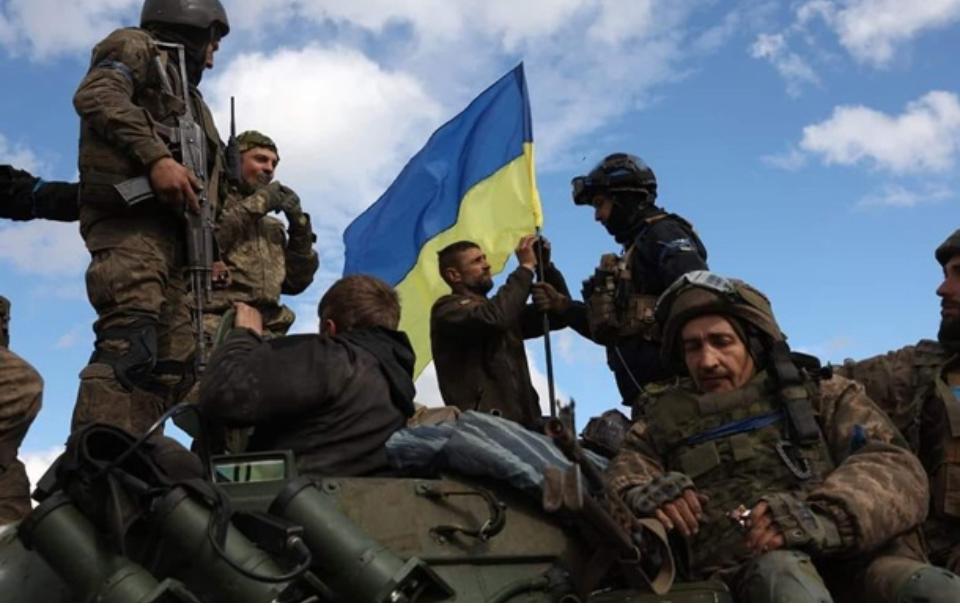A thousand days have passed since the beginning of Russia’s full-scale aggression against Ukraine—a war that has become one of the most devastating and bloody in modern history. This prolonged period symbolizes the incredible resilience and courageous resistance of Ukrainians, who are defending not only their independence but also the principles of international law and freedom. Ukraine has vividly demonstrated to the world that even under relentless aggression, it is both possible and necessary to defend one’s rights and dignity.
From the first days of the invasion, Russia has employed a strategy of terror, deliberately destroying civilian infrastructure and critical facilities. Hospitals, schools, residential neighborhoods, and energy sites have come under attack. As a result, millions of people have been left without electricity and heating during the cold seasons, exacerbating an already dire humanitarian crisis. According to UN data, more than 11,000 civilians have been killed, and over 22,000 injured, including women, children, and the elderly. Approximately 8 million Ukrainians have been forced to leave their homes, becoming refugees both within Ukraine and beyond its borders.
The destruction inflicted on Ukraine is immense. The total damage caused by Russian aggression is estimated at $800 billion. Direct infrastructure losses exceed $200 billion, while the damage to Ukraine’s ecosystems amounts to $65 billion. The war has also caused significant harm to the country’s cultural heritage—according to UNESCO, more than 450 historical and cultural sites have been destroyed or damaged.
Russia is using food as a weapon, worsening the global food crisis. After withdrawing from the grain initiative in July 2023, Russian forces began targeting Ukraine’s ports and grain infrastructure, severely hindering the export of Ukrainian grain, which is vital for countries in Africa and the Middle East. These actions have driven up food prices and caused shortages, threatening the food security of millions. According to the UN, one in eleven people worldwide suffers from hunger, and Russia’s actions only worsen this problem.
It is more critical than ever for the international community to intensify sanctions pressure on Russia to deprive the aggressor of the resources necessary to continue its war. Existing measures have already dealt a significant blow to the Russian economy, but they remain insufficient to achieve the goals of peace and security. Sanctions must be broadened to include additional restrictions in key sectors, and loopholes for evading these measures must be closed. It is also important to consider the targeted use of frozen Russian assets to rebuild devastated regions and compensate for the damages caused by the aggression. Such a step would not only be fair but would also send a strong message to other nations that violations of international law will have serious consequences.
Despite all the destruction and sacrifices, Ukraine does not surrender and is actively developing its defense industry to strengthen the country’s military capabilities. With the support of the international community, Ukrainian forces have liberated over 15,000 square kilometers of occupied territories, including strategically important cities in the east and south.
Ukrainian President Volodymyr Zelenskyy has presented the international community with a Peace Formula and a Victory Plan. These initiatives aim to establish a just peace based on international law and the UN Charter. Key provisions include a complete ceasefire, the withdrawal of Russian troops from occupied territories, and the restoration of Ukraine’s internationally recognized borders.
One of the most significant developments has been the decision by the United States, the United Kingdom, and France to allow Ukraine to use long-range weapons to strike military targets within Russia. This provides Ukraine with the ability to more effectively protect its citizens and critical infrastructure by striking strategic enemy targets. Ukraine expects further support from its allies to intensify pressure on Russia and bring the war closer to an end.
The Peace Formula also includes the release of more than 20,000 Ukrainian children forcibly deported to Russia. In response to these crimes, the International Criminal Court has issued arrest warrants for Vladimir Putin and Maria Lvova-Belova, underscoring the importance of holding those responsible for war crimes accountable.
Only the Victory Plan and Peace Formula can ensure a just resolution of the conflict, based on the principles of international law. These initiatives exclude compromises with the aggressor and are aimed at restoring Ukraine’s sovereignty. Unlike the proposals from China and Brazil, which are limited to general calls for a ceasefire, Ukraine’s initiatives demand concrete steps for de-occupation and accountability for those responsible.
This war is not merely a local confrontation between two nations but a global struggle for the future of the international order and the right of peoples to self-determination. Leaving aggression unpunished would create a dangerous precedent for the entire world, undermining stability and security.

